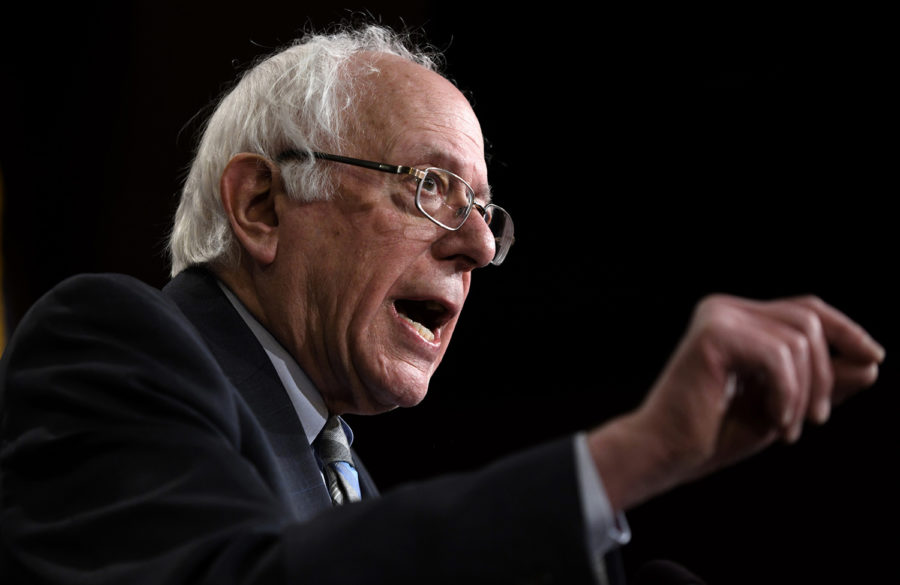Editorial: Sanders isn’t the answer for 2020
Sen. Bernie Sanders, I-Vt., announced Tuesday he would join a growing field of Democratic candidates in a bid for the presidency in 2020.
February 21, 2019
Sen. Bernie Sanders, I-Vt., announced Tuesday he would join a growing field of Democratic candidates in a bid for the presidency in 2020. In 24 hours, his campaign raised $6 million, with an average donation of $27.
This is an impressive feat, which Sanders took to Twitter on Wednesday to brag about. But the quick surge of support he received doesn’t necessarily make him the best Democratic contender for 2020. In fact, his attempt to do what he failed to accomplish in 2016 is both selfish and egotistical, and not in the best interest of his party.
The $6 million in donations seemed to capture President Trump’s attention, who tweeted Wednesday, “Crazy Bernie has just entered the race. I wish him well!”
Sanders shot back, “What’s crazy is that we have a president who is a racist, a sexist, a xenophobe and a fraud. We are going to bring people together and not only defeat Trump but transform the economic and political life of this country.”
He said to the president exactly what a lot of Democrats want to hear, but that doesn’t mean they need to hear it from Sanders, specifically.
Sanders is credited for moving his opposition in the 2016 Democratic primaries — Hillary Clinton as well as the entire party — further towards the left. He advocated for progressive economic reforms like free college, Medicare for all and a $15 minimum wage. He created a political organization that was financed by small, individual donations instead of super PACs. He managed to win 43 percent of votes in the Democratic primary.
All this is to say that he was a good candidate — but he’s nothing special anymore. Sen. Kamala Harris, D-Calif., won’t take donations for her 2020 campaign from corporate PACs. Sen. Cory Booker, D-N.J., supports a $15 minimum wage and Medicare for all. Julian Castro, former secretary of housing and urban development under then-President Barack Obama, also supports Medicare for all.
Many Democratic contenders are running on platforms that were heavily influenced by the ideas Sanders supported in 2016. These people are taking over where he left off, and Sanders should allow them to do so and act as their mentor instead of insisting on carrying on his own legacy.
There are already 11 Democratic candidates for 2020 — Sanders doesn’t need to be one of them. It’s even doubtful whether or not he could do well in a larger mix of candidates, since he was one of two options the last time he tried. It wasn’t difficult to be heard or to have a platform that set him apart from Clinton. He may find it more difficult to do so now, with so many opponents that hold similar viewpoints or have unique backgrounds.
If he were to be elected president, Sanders would be 79 years old upon taking office. He’s admitted to and apologized for harassment and gender discrimination that took place in his 2016 campaign, and he’s struggled in the past with winning over black voters. He’s old, outdated and seemingly out of touch with large sections of the American electorate.
Democrats need a candidate who is newer, younger and more appealing to a wider audience to get their party back into the White House. Sanders just isn’t that candidate.



